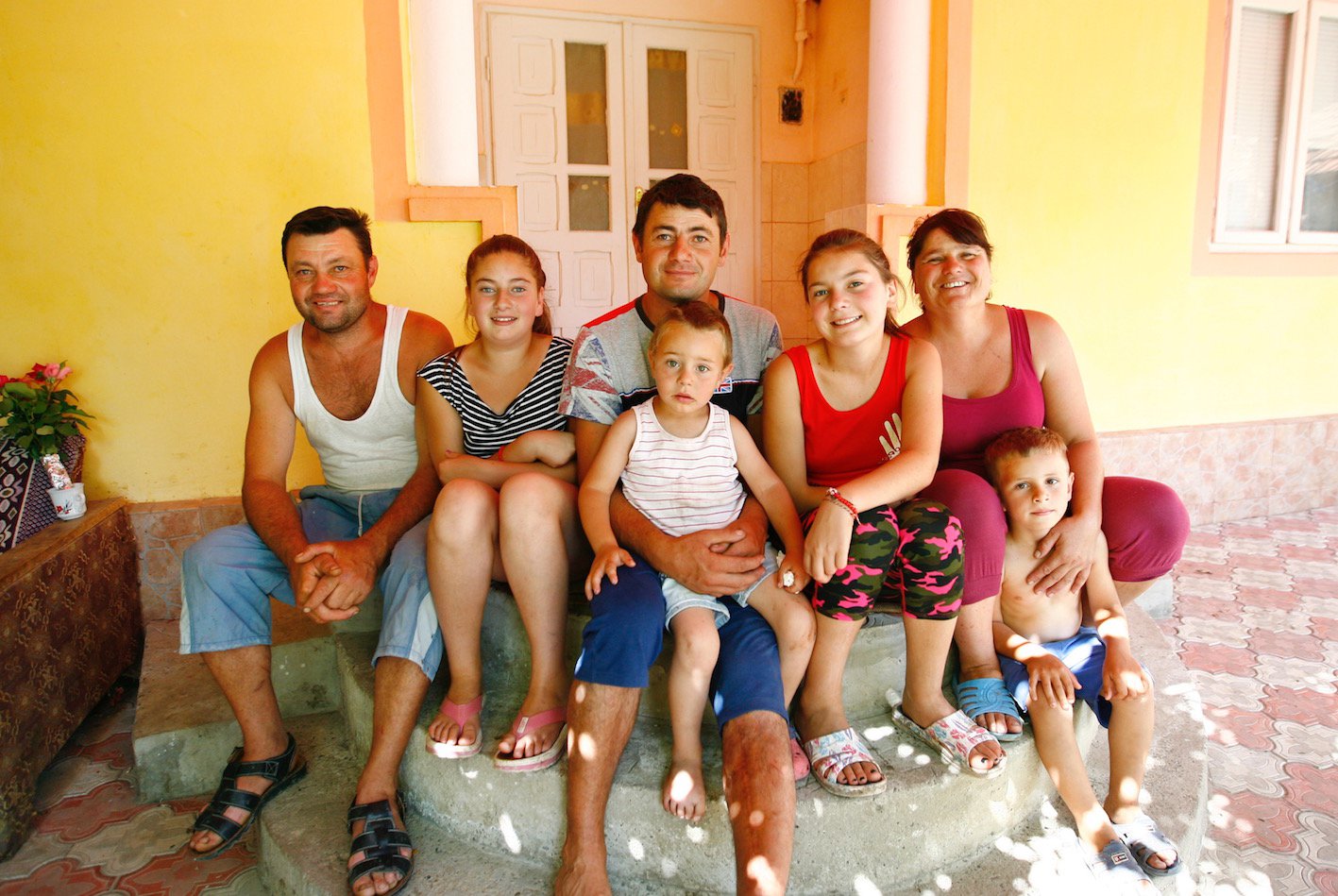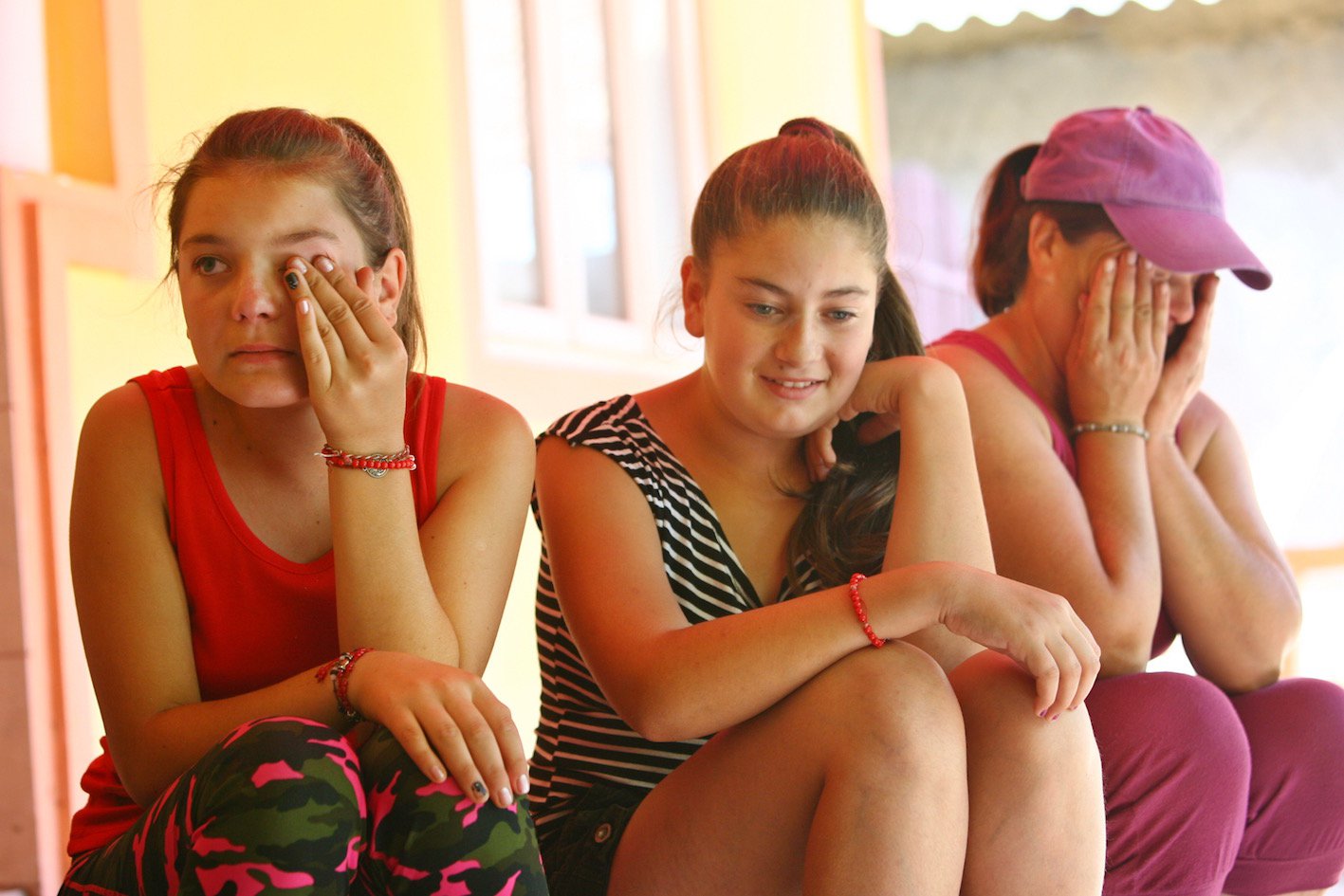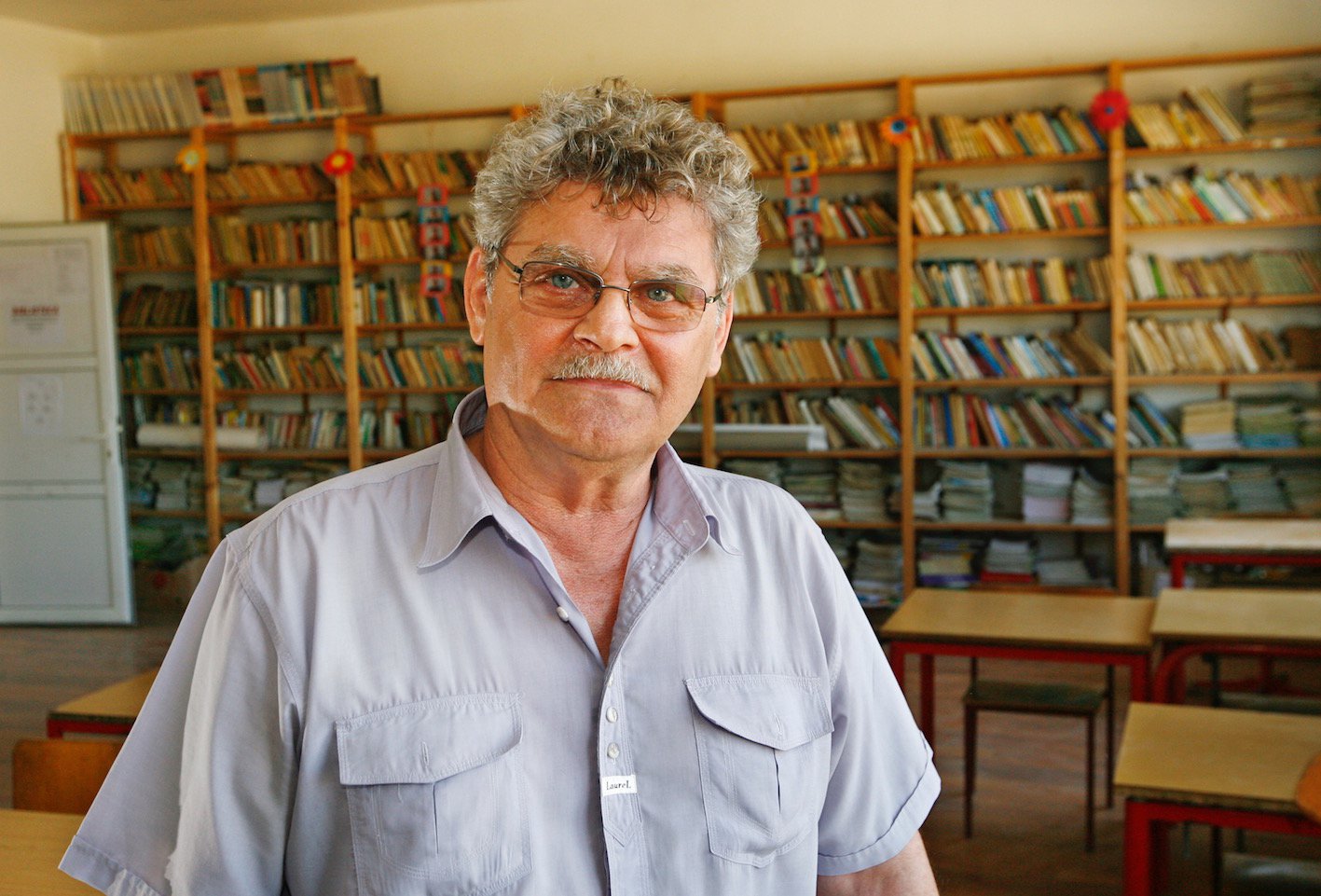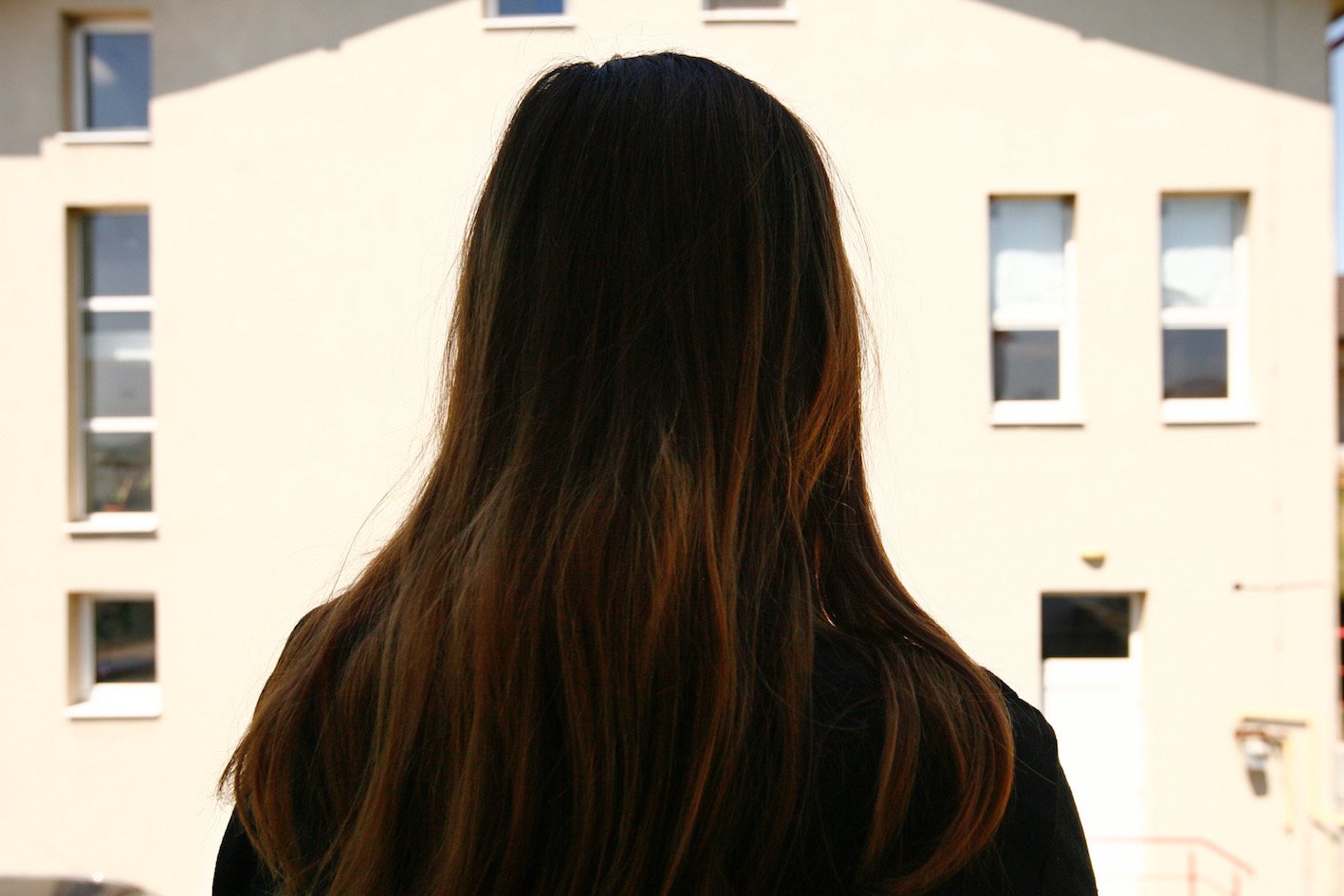The drive from the northwest Romanian city of Iasi to the village of Liteni is a winding route through an open vista of sunflowers. Tractors work the fields next to peasants driving battered horse-and-carts, heavy with hay. On a fallow meadow outside the village, a shepherd with a tanned face holds up a gnarled wooden crook, and calls to his flock. The sheep pass by a lake, recently restocked with carp, and now open for fishing.
Crossing a narrow bridge into the village, we drive along roads that kick up clouds of dust, between rows of houses - new and old. Many are unfinished, with bright tiled roofs, and exteriors of plaster, standing on land scattered with building tools and broken pieces of fence.
We follow the road to the heart of the village, accompanied by the local school headteacher, George Moga, who points to the buildings.
“That house was made with money from Greece,” Moga says. “That one - with earnings from Italy.”
It’s a torrid July day and Moga takes us to a smallholding which breeds pigs and chickens. He introduces the owners, a family led by father Costel Butnaru.
“Come here in the strawberry season,” he says, “you won't find the shadow of a woman in this village!”
“It may be tough abroad, but being left behind is worse.”
Costel’s wife Vasilica, 44, has been on the road between home and work for eight years. She travels from Romania to Almonte, Huelva, in southwest Spain, where she shares a room with five women. From March to mid-summer, they pick strawberries and in September, they prepare plants for the coming season.
“I got left behind to take care of the children,” says Costel. “I taught them how to write, took their hands in mine and we drew letters together. I was trying my best to be there for them, and make sure they have what they need.”
A decade ago Vasilica was a housewife, and Costel was earning ‘nice money’ working in construction in Bucharest. But since the financial crisis of 2008, he could not find stable employment.
Sometimes there is work in the vineyards of nearby wine-maker Cotnari. Over 35 kilometres away is a car upholstery factory in Lețcani, but they only pay the minimum wage, plus food vouchers. Costel would need to commute by bicycle, even at night, and in weathers that can reach minus 20 degrees.
“It may be tough abroad,” says Costel, “but being left behind is worse.”
Romanians now has one of the highest percentages of its citizens working abroad in Europe, and many come from rural areas such as Liteni, where work is scarce or poorly-paid.
The villagers moved abroad to work in building, fruit-picking, housekeeping or care work in Italy, Spain, Germany and Cyprus.
But since the construction boom in southern Europe collapsed in 2008, the jobs available favour skills usually associated with women - which means a new phenomenon is emerging in Romania: villages with few - if any - women of working age, and large numbers of children growing up without a mother.
“We didn’t have our Sunday rest. We even worked on Easter Day.”
13 year old Gabi Butnaru has just finished 6th grade in the village of Liteni.
“Mommy used to help me read,” she says. “Sometimes she would help me with homework.”
But her mother has been leaving for work abroad since her daughter was in kindergarten. This year, on 9 March, a day after International Women’s Day, she left to pick strawberries and raspberries on a farm in Lucena, Spain.
Gabi’s life changed. When her father was out farming, she had to learn how to bake potatoes, make soup, and clean and feed the pigs, cows and chickens, before she could find the time to study.
“It was tough,” says Gabi, her eyes welling up with tears. “Finding the energy to do it all, to do it well…” With a straight face, she starts crying.
Her mother Mihaela is now back in Romania. It was tough for her to be away from home, among foreigners, and working for a boss with high expectations, whose language she did not speak.
She shared a room with four other women on the farm. Monthly rents in the nearby Spanish town were around 250 Euro per month, and the women needed to keep this cash for home.
Mihaela worked to exhaustion.
“We didn’t have our Sunday rest,” she says. “We even worked on Easter Day!”
Collecting strawberries is painful work. Pickers must bend over seven days a week, up to eight hours a day, plus overtime, and need to move fast through the bushes.
“I only got up to move when I carried the crates of fruit,” Mihaela says. “There is no stool to sit on, and nowhere to sit at all. Some women can rest on their fists, but I can’t. My back is killing me! When pain cuts like a knife, you feel like throwing in the job!”
Her husband Petre runs through the list of drugs his 33 year-old wife takes to Spain: painkiller Ketonal for backache, paracetamol for toothache, valerian herb for stress relief, and aspirin to increase the blood flow.
Despite the physical pain at work, and the emotional pain at home, Mihaela says: “We don’t have a choice: we need the money!”
Her husband broke his left leg 12 years ago, and cannot bend it. Now he works odd jobs, such as shoeing horses, welding and ploughing.
“He earns enough for bread and a bottle of cooking oil,” says Mihaela. “But with these earnings, child benefit and tiny aid from the local government, one can’t afford much.”
The family sometimes landed in debt, which she needed to pay off, and meant leaving abroad for longer, while her injured husband stayed at home with her daughter.
“A child is suffering,” she says. “She’s doing hard household work and yet she’s only a child. She shouldn’t be exploited, she’s so young! She’s had a lot to bear from a very young age!” Mihaela’s voice fades and tears resume. “I can’t bear being apart from them!”
Gabi nods through her sobbing, and admits she was crying often on the phone to her mother, asking Mihaela to return. Will she let her mother go abroad again?
“No!” Gabi says without hesitation, wiping her face dry. “All I want is us all to be at home, united, and to be a happy family.”
“School, clean, cook, do homework, sleep, repeat”
13 year-old Lavinia’s mother left to Spain for the first time this year to pick fruit, and she had to take on her mother’s duties. This was stressful, as Lavinia loves to feel prepared for the school day, which lasts from 8 am to 2 pm. “Then I would clean, cook, do homework, sleep,” she says, “get up in the morning. Get dressed. Brush hair. Go to school. Repeat.”
She is in a class where 13 of her fellow pupils from 28 have parents working abroad. In many cases, this has ruined marriages, and the parents divorced.
“These pupils are not how they used to be,” says Lavinia. “They’re more distant, more reserved, less childish. Some of their grades are falling. All they can think about is the break-up of their parents.”
The number of children growing up with one or two parents working abroad is in the 100,000s in Romania, and could account for around ten per cent of all kids in the country, though true statistics are sketchy.
At the primary and middle school in Liteni, 115 pupils from 350 have at least one parent working abroad. The headteacher George Moga says economic migration scars many of the children left behind.
“We’ve experienced cases of child burn-out,” Moga says. “Parents who work abroad tell children that they are doing this for them. Meanwhile, the child’s sole duty is to study hard, so children who have to learn to manage without a parent’s help or supervision, drown themselves in study or household chores, and often end up unable to smile.”
Nation on the Minimum Wage
The United Nations believes around 3.4 million Romanians have emigrated since the fall of Communism - 17 per cent of the country’s citizens.
Every village in the country has seen its share of work migrants - officially there are now over one million Romanians are in Italy, 900,000 in Spain, 600,000 in Germany and 180,000 in the UK, but the real figure is greater.
At first glance, an observer would ask whether this was due to Romania’s rapid deindustrialisation following Communism, which must have witnessed a surge in unemployment.
But on paper, only 4.18 per cent of Romanians are jobless. One of the lowest numbers in the EU. So why do they move abroad?
Firstly, there is no job security. Only 5.1 per cent of the working poor aged 16 to 64 have a permanent employment contact.
Secondly, wages are too low. The country has the second lowest minimum wage in the EU - at a net value of 1,065 Lei (232 Euro) per month. Over 230,000 citizens earn less than the minimum wage. The state has to top up the difference with benefits.
Thirdly, too many employers pay this rock-bottom salary. According to Labour Inspection agency data, around a third of contracts covering full and part time jobs pay the national minimum wage or under.
Romania’s average (median) salary, the net cash that families take home at the end of the day - is the EU’s lowest - at 2,448 Euro per annum, and has been since the crisis of 2008. Bulgaria beats it with 3,151 Euro, according to Eurostat.
This is set against the fact that prices of goods and energy costs are more or less the same as in western Europe.
“An increased number of sexual abuse cases”
This behaviour of the children left behind changes. A 2012 UNICEF report, and a Soros Foundation study found that parent migration was one of the main causes of children leaving school early. In general, one in five kids in Romania leave school early. This rate is on the rise - to 19.1 per cent in 2015, according to an EU report.
Director of the Social Assistance and Child Protection Services (DGASPC) in Iaşi Niculina Karacsony says a major problem is that many children have not been prepared by their parents for a temporary separation.
“We’re not condemning parents who leave to earn a living abroad,” says Karacsony. “But we are condemning those who do so without preparing their children for the separation, and who do not communicate often with them.”
This is backed up by Alex Gulei, executive director of Alternative Sociale, an NGO in Iaşi which works closely with DGASPC. “One thing that comes up again and again is that they hate when parents forget to Skype at 7 pm as they are expecting, or promise to return on a date when they don’t,” says Gulei. “They hate it when parents do not deliver on their word.”
In the most extreme cases, say experts, kids left behind by parents have died following irreversible depression. Another problem is domestic violence. Among the cases of children of migrant workers that are referred to DGASPC Iaşi, its director stresses “an increased number in cases of sexual abuse”.
This most commonly happens within the family, and when mothers are not at home. Some fathers have not seen their wives for a long time, and have taken to drink, while brothers have abused their siblings. Victims have been as young as three years’ old.
“I grew up with my parents fighting. This was our normal.”
19 year-old Andreea’s mother worked abroad in Italy during her teenage years, leaving her and her younger sister with a father who took to drink and violence.
“I grew up with my parents fighting,” she says. “This was our normal. I was glad when mommy left because my father was brutal with her. Finding work in Italy was her escape.“
Now she is a volunteer organising social activities at the Alaturi de Voi Foundation, which aims to reduce teenage pregnancies and drug abuse, and offers young people social and psychological support.
Just before Andreea became a teenager, her mother, a sales assistant, needed money because she was in debt after defaulting on bank loans. Her earnings from work in Italy covered the interest payments, and she could send cash home only for food.
“But there would be times when father would waste all the money on smoking or another of his addictions,” she says. ”He became jealous, and suspected my mother of cheating.”
Her mother telephoned often and saw her daughters once or twice a year. But having to step into her mother’s role, take care of her little sister and the house, meant Andreea would be fainting, and feeling sick, and soon developed gastritis.
”It was mainly because of stress, but also poor nutrition,” she says. “I was young when mother left, I couldn't cook and was eating instant soup all the time.”
During this time, the teenager was admitted to hospital for five times with gastritis.
As her parents’ marriage disintegrated, her father began hitting his two daughters.
”He filed for a divorce, thinking this would bring my mother home and make her stay,” she says. “Mother saw this as her chance to escape a bad marriage and she took it.”
As the separation began, Andreea’s father kicked his two kids out of the house. They did not even have time to pack their belongings. In shock, they sought refuge at their grandparents’ house, where - due to the age gap - they would have constant arguments.
“I asked my mother to come home immediately, as I could not look after myself,” she says. “But because we would be left with no money, I had to wait for her to save for one more year.”
Alexandra says that she has lived in “total stress” most of the years spent away from her mother.
“If someone is confrontational or raises their voice, I’m in tears,” she says. “I cry out randomly and I don’t understand why.”



